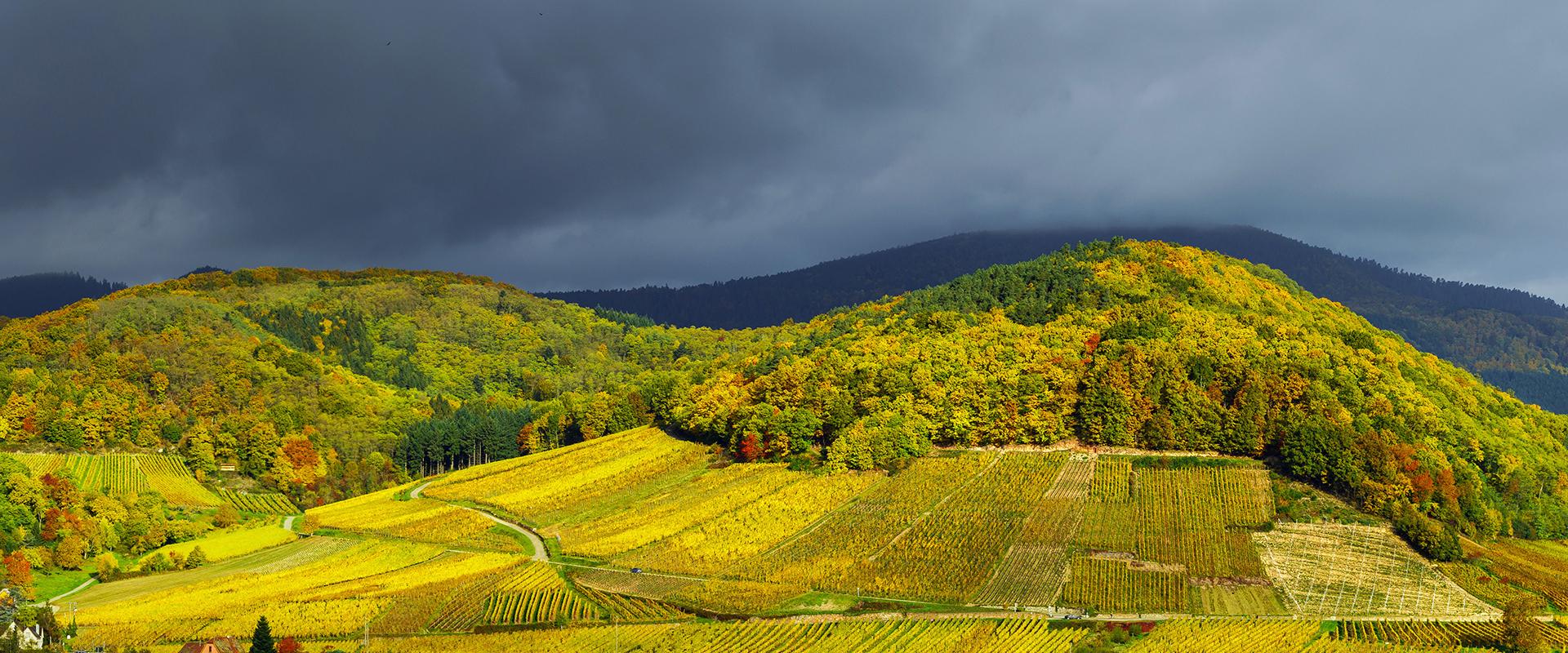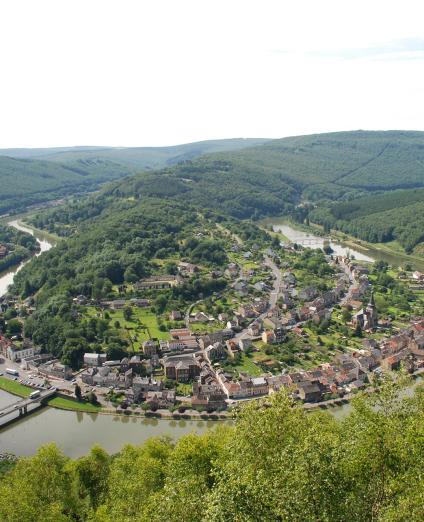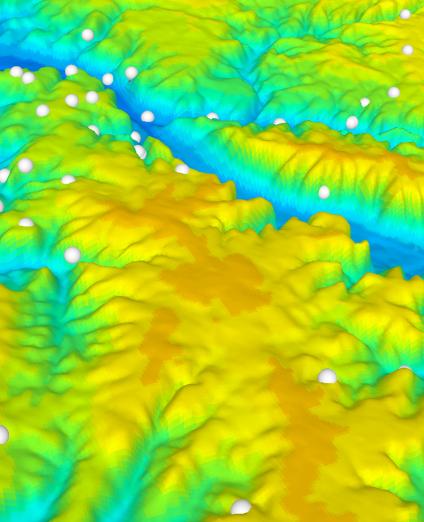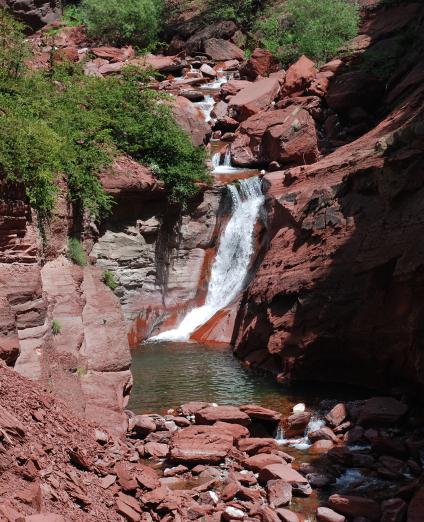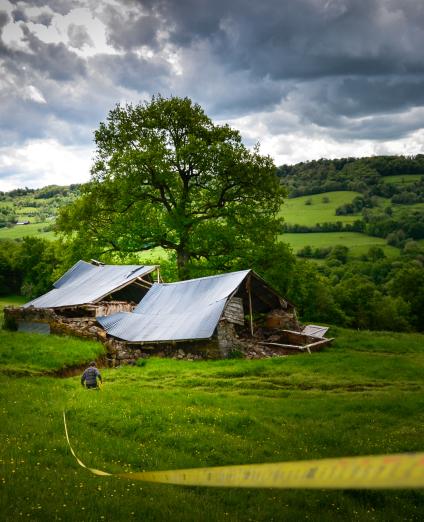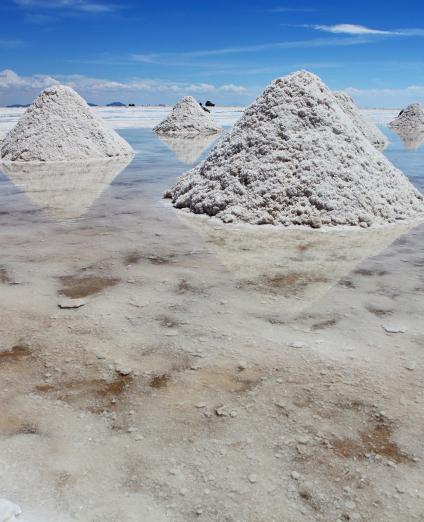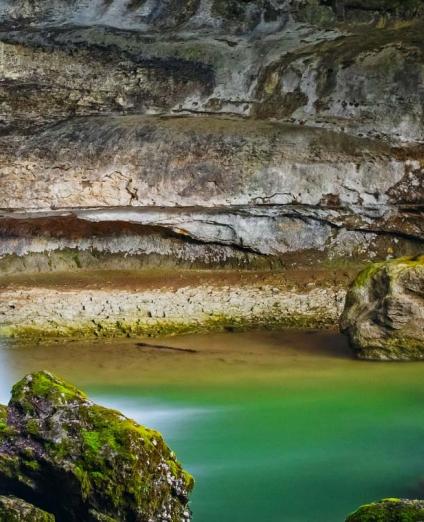As a public institution for research and expert studies, BRGM contributes to the dialogue between science and society in its different fields.
Establishing a dialogue with civil society representatives in the French regions
BRGM's regional representatives organise meetings with representatives of civil society groups to discuss regional environmental questions relating to BRGM's areas of expertise and on which papers and articles have been published.
These meetings provide opportunities for open and constructive discussions. They stimulate exchanges of knowledge - or of knowledge "gaps” - questions from all parties and the expression of their expectations, while observing the ethical principles that guarantee transparency and trust and preserve the independent judgement of all concerned.
Summary of the meeting held at Munster on 25 May 2018
Topic on the agenda
Water resources in the Vosges and their vulnerability to climate change
Date and venue
25 May 2018 at the Ballons des Vosges Regional Natural Park
Agenda
- Brief presentation of BRGM
- Presentation of initial data and findings on water resources and their vulnerability to drought
- Introduction to the concept of basement aquifers
- Presentation of the large-scale study undertaken in 2018 to characterise water resources across the Vosges crystalline massif
- Open discussion on the topic and related challenges for the region
Participants
14 participants representing the following organisations:
- ETC Terra
- Vosges Nature Environnement
- Alsace nature
- Spéléologie Alsace
- Saumon Rhin
- Maison de la Terre de Sentheim
- Alsace Destination Tourisme
- Upper Rhine Federation for Fishing and Protection of the Aquatic Environment
- Lower Rhine Federation for Fishing and Protection of the Aquatic Environment
- CCI Alsace
- Ballons des Vosges Regional Nature Park.
Specific points, participants' expectations and questions, discussions
Many points were discussed, many questions were asked and the participants expressed their satisfaction at the end of the meeting. They appreciated that BRGM took a proactive approach to listening to representatives of civil society and that their questions and comments were noted.
Questions concerning groundwater resources in the Vosges in Alsace and their vulnerability to drought
How reliable is the figure given for the long-term decline in aquifer recharge?
The reliability limit is inherent to the principle of the modelling itself, since we work with averaged data. It is also difficult to be sure of the degree of certainty of the data. However, a recharge deficit of 10 to 25%, according to Explore 2070, is already significant in terms of groundwater resources.
You say that abstraction is not affecting groundwater resources in the Vosges range in Alsace; is that based on actual figures or on projections? Local elected officials say they are encountering difficulties.
We rely on actual figures. Although abstraction has increased, no problems have been observed with groundwater in Alsace or in the Forêt Noire area. Droughts do occur locally, but there are no indications that these amount to an overall long-term trend. It is nevertheless important to differentiate between the overall impact and local use conflict issues and pressures on the resource that can have a long-term impact.
Did you cross-reference the data with forestry data? Losses of bicentennial trees have been observed in areas where there has been no increase in abstraction.
No, we have not cross-referenced our data with forestry data. We work on groundwater, whereas their data concern surface water.
What about the deregulation of abstraction over the year?
We are studying the inertia of the system to see if it can respond to an extreme case. We are analysing the overall resistance of the system. We're not sure how resilient it is.
We know that some crop systems are more or less resistant to drought. The problem with the massif is that it rains a lot but less of the water is being stored. INRA is also providing answers. There is a need to synthesise these studies across disciplines and institutions.
It would appear that the hypothesis of an underground water reservoir in the Vosges is becoming clearer. And if there is one, would it help the massif to resist climate change? This is the first part on resources. BRGM is also participating in cross-cutting discussions on use conflicts and prospects for coexisting water uses.
Are you also going to work on the sandstone areas of the Vosges?
This is an overall study of the Vosges range, where the aim is to increase our knowledge of the basement resource; this is a significant advance as few studies have been carried out so far on the crystalline basement. However, sedimentary aquifers will also be studied.
Questions concerning the characterisation of groundwater resources in the Vosges range as a whole
Are you interested in having the data acquired while my house was being built?
Yes, we want all the data we can get, although I cannot guarantee that we will be able to use it. But the more data we have, the more interesting it gets.
Will you do any work on the Vosges sandstone formations?
When they overlay crystalline rocks yes, because that is where the water circulates so they are useful to understand how the system works. Otherwise no.
At the end of the study, will you make recommendations for the Drought Committee? It’s been working here for years, but it’s difficult for us to plan ahead.
The studies carried out by BRGM are indeed intended to provide input for Drought Committee deliberations. BRGM also sits on these Committees and makes recommendations resulting from its work.
For financial reasons, the number of monitoring facilities has been reduced, which makes projections more difficult.
We will be making recommendations about the need for knowledge based on monitoring but we can’t be sure they will be followed.
Will the municipalities be informed about your work?
Yes, we will be sending out emails. If you are thinking of particular municipalities, please send us their contact details.
Who is studying the crust and what is its thickness?
The Vosges range no longer has a crust as it has mainly eroded away. Crust formations are more common in tropical climates.
Does the study cover the Ramberchamp stream catchments?
It was not carried out by BRGM's agency for Eastern France.
On a practical note, I was wondering if it is possible to contact you about the current Vittel case?
Results from studies funded with a grant from BRGM are always made public on our website, although this can sometimes take a few months.
An advantage of BRGM's network in the regions is that it can help you to locate relevant studies on issues of local importance. An advantage for us is being able to contact you to draw up specifications for study and research projects. You can also raise questions with us by participating in public debates.
Likewise, BRGM may contact associations to help you with your problems, data collection, participation in research, etc.
You can see that the aim is to forge a link between us. After this meeting, we will be able to meet again.
In the field, we are often consulted purely to lend credence to particular projects, but it's then considered that it was a proper consultation.
Yes, I understand. For some of our regional divisions, this is the third meeting of this type; some are already working with associations to draw up specifications for a study, while others have initiated more advanced partnership approaches. We need to change our perceptions of each other.
To us, you are the people with the knowledge, but we are often put in a position where we have to make decisions without having the knowledge to make the right ones. Could you share with us the opinions that you issue upstream of the decision-making process?
Various BRGM activities aim to meet this need, such as our participation in the local SAGE water committees (CLE), drought committees, etc.
Presentations
-
Download the presentation on "Sensitivity to drought of groundwater resources in the Vosges range in Alsace"(PDF, 2 MB)
-
Download the presentation on "Characterisation of the groundwater resources of the Vosges range, vulnerability to climate change - extension of the previous study on the Alsace sector"(PDF, 15 MB)

